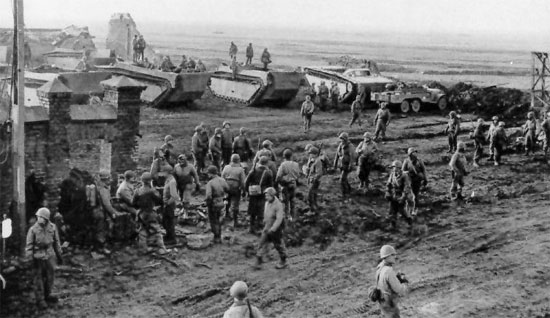This blog post will explore some of the crises the Weimar Republic faced.
Crisis 1: Ruhr Crisis
 Remember back in my Treaty of Versailles blog post? One of the terms stipulated that the Germans had to pay a 'reparation', or 'fine' of 6.6 billion dollars. The Germans paid, but not to France's expectations, so in January 1923, French troops marched into the 'Ruhr', which was Germany's most important industrial region.
Remember back in my Treaty of Versailles blog post? One of the terms stipulated that the Germans had to pay a 'reparation', or 'fine' of 6.6 billion dollars. The Germans paid, but not to France's expectations, so in January 1923, French troops marched into the 'Ruhr', which was Germany's most important industrial region.The Germans responded with 'Passive Resistance', which meant refusing to have anything to do with the French and, in particular, refusing to work. The problem here was that Germany was now losing all that the Ruhr would normally have produced; passive resistance was infact making Germany weaker !
Crisis 2: Hyper-inflation
The next crisis was also a very significant economical one. The Germans did not have enough money to pay for the costs of the passive resistance in the Ruhr, so it simply printed more money. For those studying economics, you should know that when a government prints money which it does not have, the value of money goes down and prices go up. This is exactly what happened.
This is called HYPERINFLATION. The effects were disastrous. From the photo on the right, you can see how worthless money became due to hyperinflation. The middle-class, who had savings and pensions, were most greatly affected.
People did not blame the Kaiser for the crisis. They blamed the Weimar Republic, which had agreed to pay reparations.
Crisis 3: The Munich (Beerhall Putsch)
 In 1923, the Chancellor of Germany, Gustav Stresemann, decided that Germany would give in to France and continue paying reparations. To those who hated the Republic and particularly to the gangs of right wing extremists who had made the southern state of Bavaria their base, Stresemann's decision was a betrayal. Encouraged by the Bavaria Government, they plotted a putsch against the Reich government. On 8-9 November, Adolf Hitlers NAZI party launched an attempted revolution in Munich. It was easily crushed but it was an example of the violent political extremism and hatred towards the Weimar Republic.
In 1923, the Chancellor of Germany, Gustav Stresemann, decided that Germany would give in to France and continue paying reparations. To those who hated the Republic and particularly to the gangs of right wing extremists who had made the southern state of Bavaria their base, Stresemann's decision was a betrayal. Encouraged by the Bavaria Government, they plotted a putsch against the Reich government. On 8-9 November, Adolf Hitlers NAZI party launched an attempted revolution in Munich. It was easily crushed but it was an example of the violent political extremism and hatred towards the Weimar Republic.
No comments:
Post a Comment